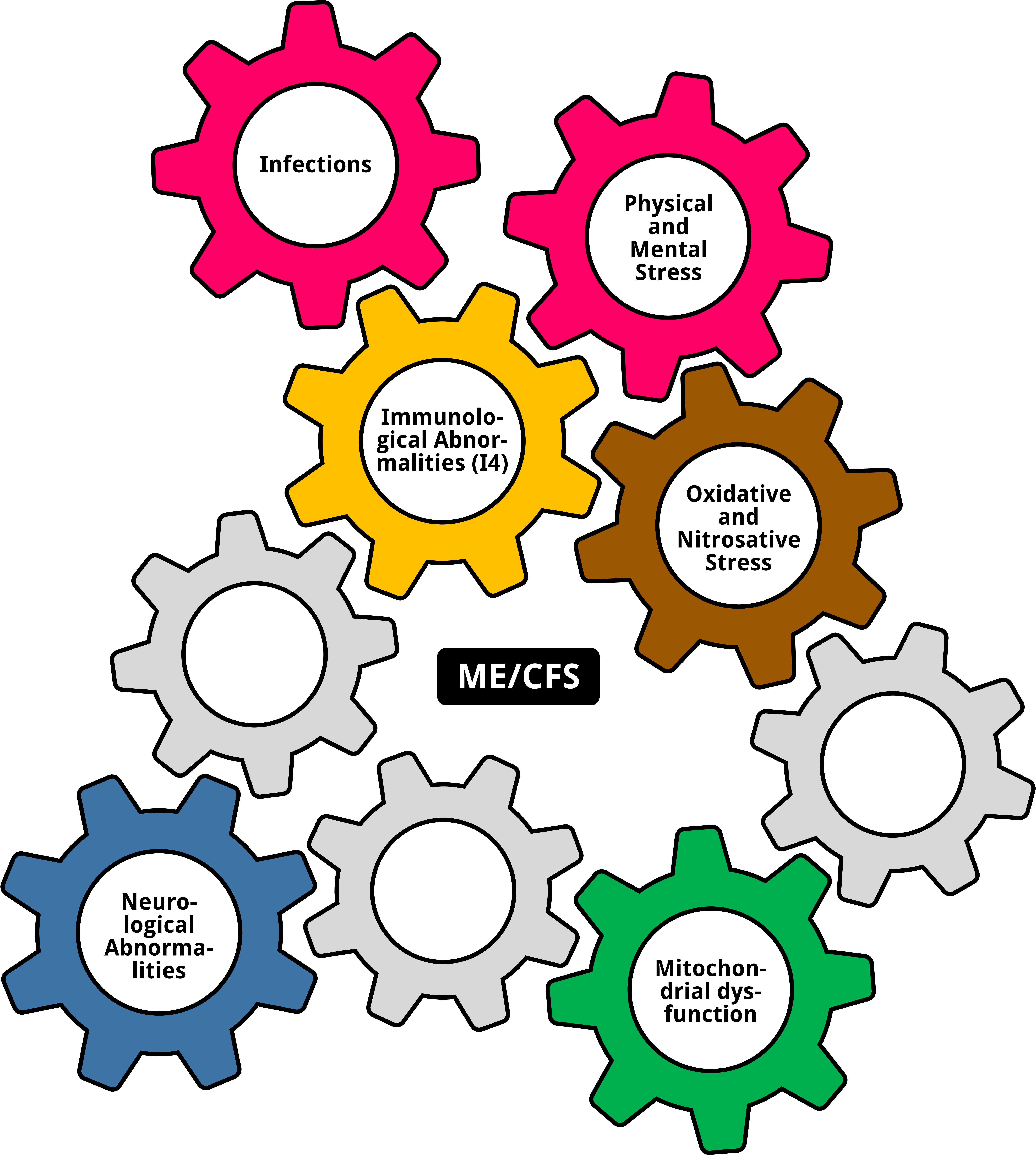
The 4I Hypothesis: A Neuro-Immunological Explanation for Characteristic Symptoms of Myalgic Encephalomyelitis/Chronic Fatigue Syndrome
Abstract
Characteristic symptoms of Myalgic Encephalomyelitis (ME) are (muscle) weakness, muscle pain, cognitive deficits, neurological abnormalities, but above all post-exertional malaise: a long-lasting increase of symptoms after a minor exertion. In contrast, Chronic Fatigue Syndrome (CFS) is primarily defined by “chronic fatigue”. Since “chronic fatigue” is not mandatory for the diagnosis ME, and post-exertional malaise and cognitive deficits are not obligatory for the diagnosis CFS, the case criteria for ME and CFS define two distinct, partly overlapping nosological entities. ME and CFS are considered to be enigmatic diseases, qualified by some authors as “medically unexplained syndromes” of “functional syndromes”. However, specific abnormalities consistently observed over the years and their direct and indirect sequels can plausibly explain characteristic symptoms, e.g. “exhaustion” and pain. Abnormalities established repetitively incorporate immunological aberrations (inflammation, immune activation, immunosuppression, and immune dysfunction), persistent and/or reactivating infections, gastro-intestinal dysbiosis, oxidative and nitrosative stress, mitochondrial dysfunction, a (prolonged) deviant response to exertion and orthostatic stress, circulatory deficits, and neurological abnormalities.This article depicts the 4I hypothesis, an explanatory model for ME (CFS) with a central role for four types of immunological abnormalities: inflammation, (Th2-predominated) immune activation, immunosuppression, and immune dysfunction. The potential direct sequels of these abnormalities, e.g. increased oxidative and nitrosative stress, (reactivating or chronic) infections, and their possible indirect consequences, e.g. mitochondrial dysfunction, hypothalamic-pituitary-adrenal axis (HPA) axis hypofunction, and cardiovascular dysregulation, can plausibly explain various distinctive symptoms of ME/CFS, e.g. “exhaustion”, (muscle) weakness, pain, cognitive deficits, a flu-like feeling, and post-exertional “malaise”.
Keywords
Myalgic Encephalomyelitis; Chronic fatigue syndrome; Immunology; Neurology; Oxidative stress; Nitrosative stress; Pathophysiology; Hypothesis; Post-exertional malaise
Refbacks
- There are currently no refbacks.
